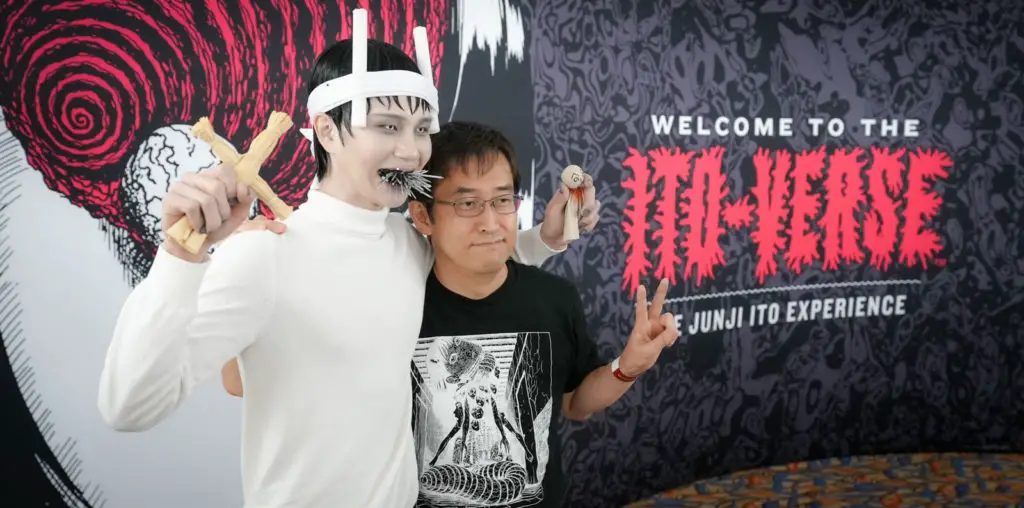
While I was raised in a Christain household, it was not a Catholic one. As such, the ideas of the saints has always confused me a bit. I understand that these people were martyred to some degree and are the patrons of the people or causes they championed in life. However, their purpose is what eludes me. Do people pray to them because they are in heaven and thus, closer to God/ Jesus’s ear? Do they handle the little prayers? Whatever their purpose, they have been the subject of several songs, plays, books, and movies.
The latest addition to this rich pantheon of storytelling is The Astonishing. Loosely based on the real-life of Belgian-born Christina Mirabilis, whose as widely regarded for her extreme faith and devotion as she is for the peculiar nature of her miracles. She is the patron saint of the mentally ill and for mental health workers.
Christina (Demitra Papadinis) lives on a farm with her two sisters. Due to money issues, the three are preparing to sell their land to the church. However, things take a turn when Christina finds schoolgirl Lutgarde (Shea Whitehead) in the woods with a boy. While the priest is appalled that Lutgarde was there, Christina begins asking her questions about sex. After comforting each other with scripture, Christina has a vision of God. The revelation is so intense that Christina passes out and after waking up, she discovers Lutgarde is gone.

“Christina Mirabilis…the patron saint of the mentally ill and for mental health workers…her sermons and spreading of the message of the Bible has her talking in tongues.”
This raises the ire of her sisters and the church. Christina runs away and comes across Thomas (Alex Dhima), the only person she has ever met who does not “stink of sin.” As Christina undertakes trek across the country, God continues to talk to her. However, her sermons and spreading of the message of the Bible have her talking in tongues. This causes those in power to believe a demon possesses her. Christina maintains that she is not crazy and that her faith in God is as strong as anyone else’s.
One of the most surprising elements about The Astonishing is that it is not a period-accurate retelling of Christina’s life. The saint was born in 1150 AD and died in 1224 AD. Writers James Ristas, who also directs, and Demitra Papadinis (who portrays the tormented saint) have transplanted this tale of unwavering faith in the face persecution into the 1910s or so. This simple move highlights the timeless qualities of being a good person and sticking to your beliefs, whatever they may be.
While the limited resources are rather apparent in the grainy cinematography, there are production design elements that stand out. The costumes for one are excellent. By just looking at each character’s wardrobe, the viewer understands what sort of person each character is. Christina’s visions when God is talking to her have a disorienting, Lynchian vibe to them. The black-and-white of the film helps these sequences come alive with atmosphere. Plus, the use of shadow for some scenes late in the film show ingenuity and offer some exciting visuals to boot.
Demitra Papadinis is bloody fantastic as Christina. She helps the character with the right amount of naivete and grit. When she is speaking in tongues, the actress really makes it seem as if it is someone talking through her. Whitehead as Lutegarde is also quite compelling in her brief role. Playing the innocent Thomas, Alex Dhima delivers expository dialogue with verve and makes for an interesting foil to Christina.

“By just looking at each character’s wardrobe, the viewer understands what sort of person each character is.”
Sadly, the rest of the cast is so-so. The two playing Christina’s sisters are dreadful, with early scenes coming across as false because they never felt convincingly piously nasty. The always drunk Rolf, played by Scott Nadeau, also brings down the movie. Mind you, the actor does okay, but the character is very humorous and over the top, which clashes hard with most of the film.
The other big flaw is the editing. Excluding the fade to blacks after Christina’s talks with God, the movie never quite gets a flow going. Most transitions are clunky, with wide shots in new locales never quite establishing the geography of the characters. This makes a few moments a bit hard to follow.
But, in the end, all these flaws don’t detract from the message of The Astonishing. That is because the ending of this film is brilliant. A bit more than 5-minutes to the end (excluding credits), the movie becomes colorized. What happens during these moments brings forth the themes and moral of both this film and Christina Mirabilis’ life more broadly, in a unique and brilliant way. It fits right in with the DIY aesthetic of the whole production and made me realize just how invested I was in the characters.
The Astonishing is not a perfect, flawless film. However, it makes up for its shortcomings with a dynamic leading performance from Papadinis, stellar costume design, and an ending that is as unexpectedly heartfelt as it is brilliantly bold.

The Astonishing (2019) Directed by James Ristas. Written by James Ristas, Demitra Papadinis. Starring Demitra Papadinis, Elle Matarazzo, Scott Nadeau, Alex Dhima, Eamonn McGrail, Shea Whitehead.
6.5 out of 10 Prayers


